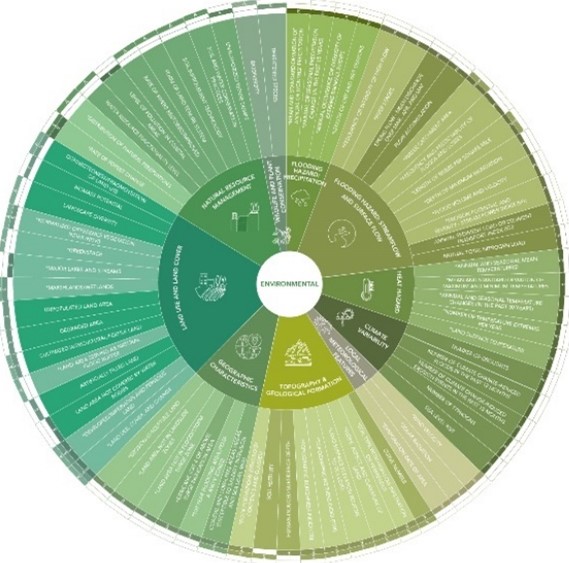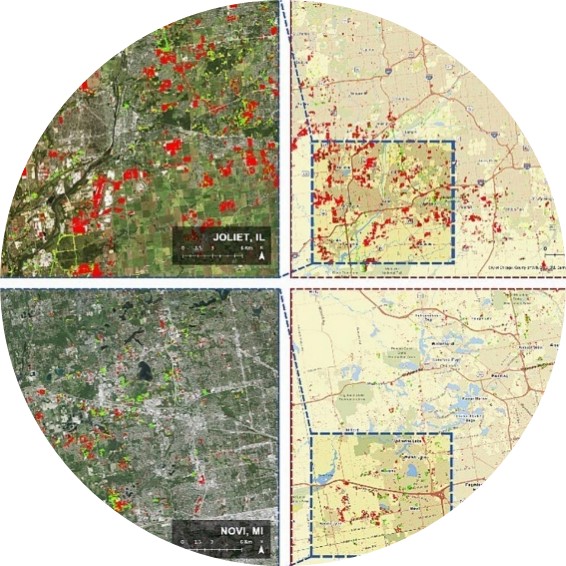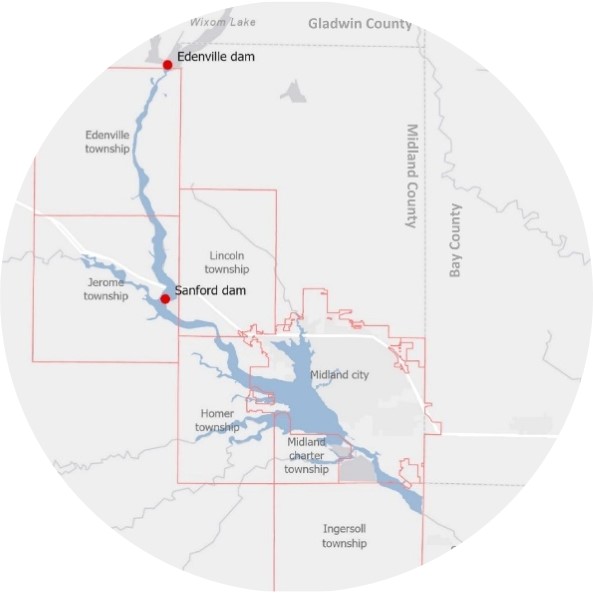
Building Resilience Against Climate Effects
Funding Agency: Michigan Department of Health and Human Services (Prime Sponsor: US Environmental Protection Agency)
Award Amount: $575,000
Project Period: 2023-2028
The primary objective of this research is to formulate and implement climate adaptation strategies as part of the Catalyst Communities initiative, spearheaded by the Michigan Department of Environment, Great Lakes, and Energy (EGLE) in collaboration with the Michigan Department of Health and Human Services (MDHHS). The Michigan State University (MSU) School of Planning, Design, and Construction (SPDC) team, in conjunction with MSU Extension, supports communities and counties in enhancing resilience to climate impacts by adhering to the Climate and Health Adaptation Planning Guide for Michigan Communities. This project involves the development of workshops and training materials tailored to community needs. Additionally, site-specific predictions of environmental metrics before and after development are generated to assist communities in making informed decisions based on robust environmental assessments.

Development of Comprehensive Climate Vulnerability and Resilience Capacity Indexes for Enhancing Urban Recovery in Midwestern Communities
Funding Agency: US Department of Housing and Urban Development
Award Amount (including matching): $326,146
Project Period: 2021-2024
The diminishing population presents significant challenges in managing hazard risks effectively. Dwindling municipal resources hinder swift responses to natural disasters, exacerbating the situation. Cities such as Detroit and Cincinnati, which have lost over 40% of their population since 1950, are particularly vulnerable to escalating climate hazards. Compounded by social segregation, these challenges impede recovery efforts following climate impacts. This project aims to: 1) develop composite indexes to quantify community vulnerability and resilience to extreme climate events, 2) verify and correlate these indexes, and 3) formulate data-driven resilience guidelines tailored to the unique challenges faced by Detroit and Cincinnati. By prioritizing various capital types (social, economic, environmental, infrastructure, etc.), the project seeks to optimize the allocation of recovery funds and implement proactive strategies to mitigate future climate risks effectively.

Longitudinal Assessment of Development Composition and Spatial Patterns of Green Infrastructure for Effective Flood Control in Growing and Shrinking US Metropolitan Areas
Funding Agency: Council of Educators in Landscape Architecture, CLASS Fund
Award Amount: $25,000
Project Period: 2021-2022
This project assesses the longitudinal impacts of green infrastructure development and spatial patterns on urban runoff yields in the Chicago-Naperville and Detroit-Warren-Ann Arbor combined statistical areas. Despite differing land development trends, both regions face increased flood risks due to climate change. The study hypothesizes that demographic transitions and land development approaches have distinctively influenced flood risk trajectories. By monitoring temporal and spatial flood and land use patterns, the aim is to identify the impacts of urban development and green infrastructure on flooding dynamics. It seeks to formulate land use policies enhancing the flood reduction capabilities of green infrastructure, tailored to meet the distinctive needs of growing and depopulating metropolises. This project yields unique insights into the interactions of urban hydrology dynamics with demographic shifts, an understudied area to date.
Publications: Final Report / Journal Publication

Climate Extremes and the COVID-19 Pandemic: Advancing the Resilience of Michigan Communities to Compound Hazards
Funding Agency: Institute for Public Policy and Social Research, Michigan State University
Award Amount: $30,000
Project Period: 2021-2022
In May 2020, Midland County, Michigan, faced compound emergencies of dam failures and flooding amid the COVID-19 pandemic, highlighting the need for integrated emergency planning. These compound hazards, derived from independent disasters occurring simultaneously, challenge traditional emergency response strategies. This project aimed to identify overlapping priorities, assess community decisions, and propose policy adjustments. Research involved reviewing emergency plans, conducting surveys, and interviewing agencies. The project outcomes contribute to enhancing Michigan's capacity to address future compound hazards systematically, particularly amidst the convergence of low-probability high-impact climate events and public health crises.
Publications: Final Report / Journal Publication



 Print
Print Email
Email